by Jenny Rose | Aug 16, 2018 | Power
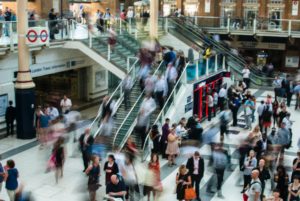
Photo by Anna Dziubinska on Unsplash
It’s easy these days to feel overwhelmed and despairing. Life is increasingly unpredictable and the future uncertain socially, economically and in terms of climate. We’ve never before been able to discuss so many issues with so many others, or been exposed to so many different sources of information and opinions. As our public education system flounders, fewer and fewer people think critically, which is daily becoming a more important tool in navigating our information overload.
I heard about a comment the other day on social media directed toward someone discussing women’s rights. The man commenting asked why we’re talking about something like feminism when climate change is so pressing. Why are we wasting energy on women’s rights while the planet is getting more and more difficult to inhabit, not in some hazy future but right now, today?

Photo by Nicole Mason on Unsplash
That question points to the reason we find ourselves in our present situation in the first place. Our social struggles reflect our approach to living on and with our planet. The thinking shaping our social behavior is the same thinking shaping our behavior as citizens on Planet Earth. If we feel we’re entitled to rape, rob or otherwise seize power and control over another human being or group of human beings, we feel equally entitled to use the planet however we want, with no thought of anyone else or the consequences of our behavior. This fertile, life-giving planet is our mother. We live on her body. The degree to which we respect and appreciate her is the degree to which we afford the same treatment to women. It’s the same discussion. It’s not a coincidence that the increasing pressure on our physical survival is happening in the middle of the current social maelstrom.
I’m not a scientist, though I endeavor to be a critical thinker. However, I’ve done quite a bit of reading on the subject of complex systems and earth systems science, including Darwin’s Unfinished Business by Simon Powell, Animate Earth by Stephan Harding, Overshoot by William Catton and Gaia’s Revenge by James Lovelock. Everything I read confirms what I intuitively recognize.
Everything matters. Everyone matters. It’s all connected.
The days are gone when we can tell ourselves what happens on the other side of the world doesn’t affect us and we need not pay attention or worry about it. We have so far exceeded the earth’s carrying capacity for our species that the actions of each individual have an effect on the whole. As human population oozes and bulges into every biome all over the globe, we also directly affect every other form of life: Animal, plant, insect, fungi and microorganism. We displace other species, poison their habitat and compete fiercely for resources. We have no sense of our own needs or the needs of others, but focus on what we want, and we want it all — right now. We deserve it. We have a right to it.
Certain groups of men have no intention of sharing power, dignity and economic resources with women, let alone sharing the planet with fungi and Monarch butterflies. Some groups would eradicate cattle from the globe before learning how to integrate them back into the healthy complex system they were part of until we threw things out of balance with our numbers and ignorance. Others work to bar immigrants, saying they’ll take our jobs, they’ll soak up social resources and they’ll poison our communities with their foreign tongues and culture, too ignorant and short-sighted to grasp we are only enriched and strengthened by the presence of other cultures.
It’s all the same discussion. It’s all connected.

Photo by NASA on Unsplash
We are only now beginning to glimpse the miraculous web of life on Earth, only now getting a sense of Earth as a sentient complex system, self-regulating and self-sufficient, and the knowledge may have come too late. Complexity is life. Complexity is resilient and creates the ability to learn and adapt. Any behavior or ideology seeking to minimize, disrupt, or eradicate complexity is destructive. Those who work for purity, for homogenized patriotism, for the complete power of one religion, sex, diet, complexion, body type or expression of sexuality are actively tearing apart our world and our future.
Our inability to live peacefully and cooperatively with one another is our inability to respect and care for the land under our feet. Our willingness to tolerate slavery, sex trafficking and bureaucracy that destroys families, indigenous groups, human rights, reproductive choice and other natural resources is the same willingness to worship the false idol of money, buy whatever we want when we want it and discard it later with impunity. If we can’t buy what we want, we take it, or steal it. This is the definition of rape culture.
Complexity is about integration. One way to interpret the old stories is to consider each character as a separate part of the same psyche. In other words, we all have an innocent Red Riding Hood maiden inside us, and we all have an old bedridden grandparent, a parent who warns us of the dangers of leaving the path, a wily predator and a heroic figure who saves the day. A healthy adult learns to know and accept his or her shadow side, as well as more admirable characteristics. Spiritual wholeness consists of a well-balanced masculine and feminine, no matter our biological sex. If we are unable to integrate all these voices and archetypes, all these facets of personality, feelings and thoughts, and operate as a whole complex psyche, we’re crippled, and we’re certainly going to be unable to take our place as an effective, joyous and elegant part of the wider complex system of Planet Earth.
So yes, it matters. It matters if you use a plastic straw and throw it away. It matters if you toss your plastic cup out the car window. It matters if you support the tobacco industry because they’ve successfully addicted you. If you throw one less item away today, it matters. If you recycle and compost, it matters. If you stop rototilling your garden, which damages the soil, it matters. The way you treat the people and animals around you matters. We don’t have the power to stop or change the enormous transition we’re caught up in by ourselves. We may never see validation, recognition or negative consequences for the choices we make, but those choices do matter, because we’re all inextricably connected, like it or not, deny it or not.
Megastorms matter. Lead in drinking water and cancer clusters matter. Water conservation efforts in Cape Town matter. Antibiotic-resistant bacteria matter. Fires, earthquakes and volcanic activity matter.
People matter, too. Our experience, feelings and thoughts matter. I don’t matter more than you or anyone else, but, as a living creature on the planet, I matter. The way I treat myself matters. My health matters, and my creativity, and my ability to learn.
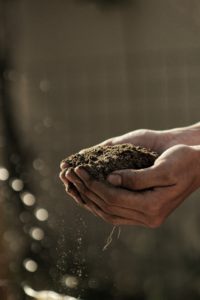
Photo by Gabriel Jimenez on Unsplash
If we can’t wrap our heads around the essential value and importance of each life, including our own, and support each individual in their personal power, we will absolutely destroy all non-human life on the planet and ourselves with it. If we’re really serious about equal rights, we need to learn to share our rapidly diminishing resources, and I don’t mean cars, technology and food delicacies grown half a world away. I don’t mean diamonds, designer clothing, private airplanes and yachts, and mansions housing a family of four. I mean basic food, clean water and habitable land. We each need to take responsibility for our addiction to instant gratification, convenience and all the latest tech, toys and trends. We need to let go of our entitlement and work together to create a sustainable standard of living for everyone.
So yes, food and water politics, sexual identity politics, human rights, healthcare, education, families and children and immigration all matter. They’re all road signs and mile markers. The question is whether we’ll travel in the direction of destruction or use these issues as opportunities to build bridges, enlarge our empathy and heal our disconnection from ourselves, from other humans, and from all other life, paving the way to managing climate change as elegantly as possible.
I know what direction I’m going in, not with hope of reaching some kind of utopia, but because it’s the only direction that makes any sense to me. Many, many people disagree with me, I know, and I’m going to have to fight the mob going in the direction of destruction. That’s okay. I never seem to be traveling in the direction of the majority, so I’m used to it, and there will be others going my way.
In the meantime, I walk the tightrope suspended over the paradox at the heart of modern life. I fight to maintain power and authority in my own life and use it for the greater good as well as my own benefit. At the same time, I acknowledge I am but one life among uncounted living beings on the planet, spinning through space with everyone else towards an uncertain future. My power is present, but limited. If I make even the smallest difference for good in my lifetime, I’ll probably never know, and no one else will ever see, and that’s okay with me.
It still matters.
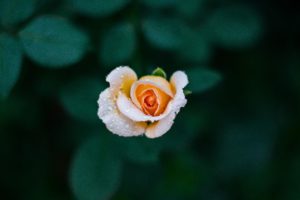
Photo by Ivan Jevtic on Unsplash
All content on this site ©2018
Jennifer Rose
except where otherwise noted
by Jenny Rose | Jun 21, 2018 | Emotional Intelligence, Feelings, Love
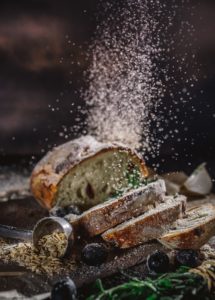
Photo by Helena Yankovska on Unsplash
In the farmer’s market on Saturday morning, we stood in line to buy bread. We did not stand in line to buy a peach raspberry pie and bread, but that’s another story (with a happy ending. The pie was worth it.) Next to the baker’s display was a booth set up by a local businesswoman who specializes in unique homemade dog treats. As my mother is owned by a dear border collie and I’m always on the lookout for something they might like, I idly checked out the booth while my partner waited in line (to buy bread, not pie.)
I found rows of attractively-packaged, carefully labeled, very expensive bags of dog goodies, most of which were vegetable-based and proudly labeled as containing “no animal biproducts.”
Sometimes I feel pretty despairing about the world. I’m sure this businesswoman is a well-meaning and hard-working person trying to earn a living in central Maine who cares about dogs. However, it would be good to avoid spelling errors on her labels and dogs are not vegetarians or vegans.
There is, in fact, debate among veterinarians and scientists about whether dogs are omnivores or carnivores, but recent research based on physiology suggests dogs are indeed carnivores. Many wild canines are apex predators. Many perform the vital function of carrion eaters and scavengers. Dogs are not vegetarians.
There are a lot of dark monsters walking the streets right now. Rampant narcissists, greedy capitalists and fanatical ideologists are slowly consuming the world. There’s another ogre abroad, though, one bathed in blue light and wearing angel wings, and that is our willful ignorance and denial of the physical and biological realities we live and die with, our inability to work elegantly with complexity and shades of grey and the cult we’ve made out of love and peace.
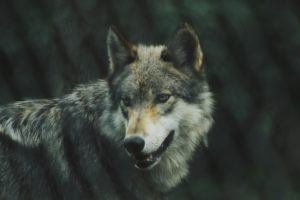
Photo by Michael LaRosa on Unsplash
One of my favorite writers on Medium, Kay Bolden, recently wrote a piece entitled Love is a Warrior, Not a Saint. She is absolutely correct. Love is not a saint. Love sees things clearly. Restricting our dogs to a vegetarian diet is not love. It’s animal abuse. If we love our dogs, we appreciate them for the magnificent companions and colleagues they are, and dogs are not vegetarians. If we love our dogs, we give them a nice raw, bloody, meaty bone now and then and we do not force them to struggle on a grain or vegetable-based diet and handfuls of supplements in order to address their nutritional needs. Wild canines form packs and hunt. They kill birds, rodents, rabbits and even larger animals, tear them apart with their teeth and eat them raw. That’s what a dog’s ancestry is. Refusing to accept that is not love.
Dogs have evolved with humans for thousands of years and have adapted to scavenge and forage amongst people. Most dog owners know that their pets will, if able, routinely eat all kinds of rubbish and frequently suffer digestive consequences. If humans are wiped out overnight in some kind of a plague, our dogs will consume our dead bodies, form packs, and begin hunting.
I despise what human beings have done to animals. Animal testing, the terrible practices of factory farming, our idiotic greed for things like rhino and elephant horns and furs, and our irresponsibility, cruelty, stupidity and malice have done no end of harm to the entire animal kingdom. We seem bent on destroying every habitat on the planet (often so people can feel self-righteous about how peaceful and loving they are as vegans and vegetarians, never mind that Big Ag wipes out hundreds of thousands of organisms and poisons the soil in every field it monocrops, not part of the natural process of life and death) as quickly as possible, leaving nothing but sterile wastes behind us. We do this. People. Homo Sapiens.
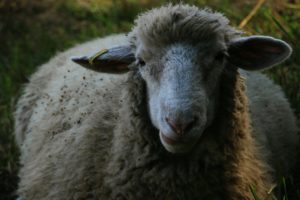
Photo by Jamie Morris on Unsplash
Bleating about love and peace and refusing to recognize carnivores, herbivores, the extraordinary complex system of Planet Earth and the necessity and function of all parts of it is just as bad as clearcutting the rainforest. Mother Nature is about prey and predator. When it’s healthy, the natural system is a complicated, dynamic dance of life and death involving countless organisms. Carnivores hunting and eating meat is not an act of violence or hate. Predators hunting prey is the natural order of things. Life on earth depends on it.
Somewhere along the way we seem to have lost our innate wisdom and connection to life. The modern age is all about arrested development. We’re like small children in sunny nurseries having a tea party with our stuffed animals and dolls. We’ve distorted love and peace into something prim and sweet, entirely artificial and entirely one-dimensional. Peace and violence are mutually exclusive. Love is entirely peaceful. Death is entirely hateful and violent. Love and peace are pretty. Love and peace are nice. They’re tolerant. They contain no animal “biproducts.”
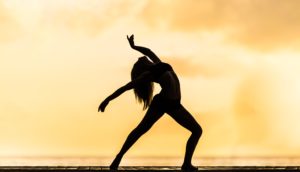
Photo by David Hofmann on Unsplash
What dangerous, infantile lies. Love is the face of the Divine, and the face of the Divine looks upon fire and flood, thunder and lightning, sand and ice and sea. The face of the Divine looks upon the musky violence of reproduction, the grinding bones and tearing tissue of birth, the vast cycles of predators and prey that encompass each layer of life from the smallest microbes to the largest animals. The face of the Divine orchestrates the checks and balances ensuring population control, which is often driven by disease, famine and drought. The Divine dances a passionate, sensual, joyful dance, knee-deep in blood, semen, bone, flesh, fat, hair, scales, feathers, rot, vomit and excrement.
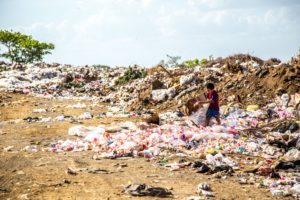
Photo by Hermes Rivera on Unsplash
In the midst of this beautiful, intricate world it’s we alone who have the fantastic hubris to refuse to participate. It’s we who deny the very ground of our being, the substance and structure of flesh and bone and biology. We rant about inclusivity and equality while we steadily eradicate life on earth, self-destruct, and allow ourselves to be divided from one another, never pausing long enough in our fatal greed and grotesque need to win and be right to understand life and death already are inclusive and equal. We all must eat and drink, successfully procreate if our genetic material is to survive, and die. We’re all part of the magnificent turning wheel of life, whether we like it or admit it or not. We’ve allowed our contemptible ideologies, our fears, our ignorance and our absurd desire for the higher moral ground to weaken us and we’ve become the most dangerous form of life on the planet, not only to ourselves but to every living thing around us. Then we project our madness onto the animals who depend upon us, reward the criminals who market vegetarian dog food and call that love. We call that being peaceful.
No. That’s not my love. My love and compassion are bigger and wider than that. I love the glorious cycle of life and death, even if it means I dip my hands in blood and endure the stench of decaying flesh. I muster the humility to learn about interconnectedness and how to participate elegantly in life and death. I love myself and others for what genetics, evolution and biology make us. I work for peace. I can wield the tool of violence if necessary. I respect and welcome death, recognizing it as a sacred consort to life.
I will give a dog a bone.
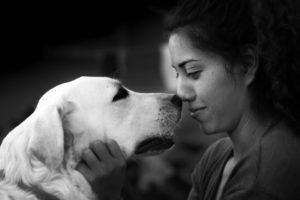
Photo by Kevin Quezada on Unsplash
All content on this site ©2018
Jennifer Rose
except where otherwise noted
by Jenny Rose | Jul 20, 2017 | A Flourishing Woman, Body
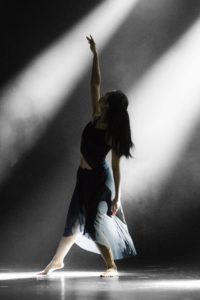
Photo by Leon Liu on Unsplash
Last night we danced. I’m patiently and persistently attempting to root a dance group into this community. It’s taking time, but I hope in the end to have a healthy core of four or five women with whom to share this sacred practice.
As I danced, I remembered an old friend with whom I danced in Colorado. She used to often say, at the end, as we sat in a circle holding hands, “It’s so good to be in the body.”
Not in the head, where family and other relationships, financial and political complexities, expectations, rules, to-do lists and all our internal voices reside, but in the body, right now.
Our bodies contain a childlike innocence and a wisdom beyond words. They communicate to us the truth about how things are with us via feeling and sensation. Patiently, they carry us through our lives, our most loyal and faithful companions. Persistently, we neglect, abandon and abuse them.
Somewhere along the way, we’ve learned to reject, be ashamed of and hate our physical being and experience. Now we’re to the point where bodily functions tied to being biologically female are a matter of political incorrectness and a hate crime. Social pressure is increasing to eradicate the very words that define female physical experience.
But dance is for everybody in every body, and the spiritual practice of dance has taught me to honor, protect and care for my physical self in new ways. There are no labels in dance, no gaslighting, no power-over that seeks to diminish or limit my physical history or expression. Dance is wordless, so there are no language police. Dance is the freedom to belch, to fart, to wiggle, to jiggle, to giggle, to cry, to shout, to play and to sweat.
Allowing my body to be and joyfully inhabiting it has been a powerful act of self-love. It means allowing my hair to grow as it will, where it will, in the color it is. It means moving with dignity and pride. It means gratitude, for my life is a journey mapped onto my flesh. Every mole, freckle, stretch mark, scar, lump, bump, line, wrinkle and vein holds part of my story, and I honor story.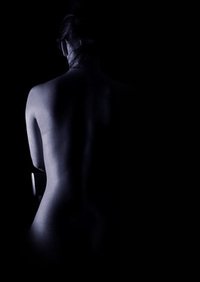
Being in my body is a powerful act of surrender, not to what the culture says I must be or not be, not to what I think I should embody or not embody, but to what I am. Simply that. The unique, miraculous complex system of genetic material, living tissue, viruses, bacteria and chemical processes that I am.
Allowing my body to be is a peace treaty. My body is not for the pleasure or evaluation of others. It’s not for sale. My body and I owe nothing to anyone, not explanation, apology, conformity, obedience and especially not shame. I refuse to go to war over gender, sexuality or political correctness ideology. I decline to support or participate in self-hatred or hatred of other bodies. The power of my body transcends the judgements, criticisms and opinions of others.
The deepest language I know is of the body. Words are inadequate to my passion, to my love, to my creativity. Spoken and written language fails to convey the richness of my body’s capabilities.
The tick crawling high on the nape of my neck along my hairline, the feel of its tiny claws stirring each hair as it seeks a good place to fasten on, gives me a physical experience so vivid and visceral it cannot possibly be conveyed in words. My skin shrinks, telling me what the sensation is before I examine the cause with my eyes. Undisturbed hair around its path rises, quite automatically, in response to the small but ominous trespass. It feels solid and smooth as an apple-seed between my thumb and finger as I pinch it off. It hurries up and down a bookmark, chestnut colored, as I transport it down the stairs, almost as though it knows it’s been seen, recognized and a death sentence passed.
We come out of our favorite restaurant after a meal on a hot, humid day and find a snake clothed in brown and green, voluptuously twined around our right front tire. My partner stoops and grasps it and it curls and writhes as it dangles from his hand, twisting between the newly-laid black tar and the heavy sky, glaring with sun, humid as a steam bath. My partner takes it into a nearby field and as he comes back he holds out his hand with a rueful expression, showing me beads of bright red blood, dazzling as rubies, on his finger, and two parallel shallow cuts that sting, he says, like paper cuts.
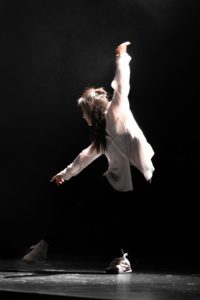
Photo by Leon Liu on Unsplash
Last night I danced with the tick, the snake, the rasp on my knee from falling on the front cement steps, their uneveness hidden by the encroaching hostas, blooming now on thick, fleshy stems, their lavender flowers plundered all day by bumblebees.
I danced with the rattling air conditioner lodged into a window of the recreation center activity room. As usual, we traded the rise in heat and humidity in the room with the lower and quieter fan setting.
I danced with a dead fly on the wood floor, trying to avoid stepping on it with my bare foot. I danced with a living large black ant, bewildered, crawling across what must have seemed like acres of flat, featureless terrain, also not wishing to step on it, but too involved in the flow of the music to stop and take it outside.
I danced with my breasts and belly and thighs, with my feet and elbows and wild hair. I danced with trickles of sweat and a wet upper lip. I danced with my tattoo and swaying earrings and sliding silver bangles. I let myself go. I let myself be. I let myself sink into my body as though sinking into a lover’s arms, for I am my body’s lover, and it is mine.
I danced, and remembered again how good it is to be in the body.

Photo by David Hofmann on Unsplash
All content on this site ©2017
Jennifer Rose
except where otherwise noted
by Jenny Rose | Dec 22, 2016 | A Flourishing Woman, The Journey
It’s taken me a long time to come in peace to Winter Solstice.
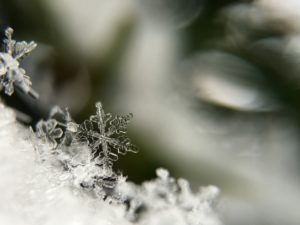
Photo by Aaron Burden on Unsplash
Just a week or two ago, I wrote my mother that I’ve always felt desolate during the Christmas season, but I didn’t know why. I couldn’t say what would make it perfect. Somehow, in nearly fifty Christmases in my memory, I’ve never gotten it right. In the last years, without children or significant other, I’ve always chosen to work and just pretend it wasn’t happening.
This year, quite unexpectedly, is different.
Human beings are strange creatures. We create a winter celebration around the sun’s rhythm. We do fire rituals and tell stories during the shortest day of the year in order to woo the sun back for the next cycle of life and growth.
Then we superimpose a religious festival on top of that old pagan celebration and talk about miracles, new life, humble beginnings, peace, joy, faith, hope and all the rest.
Then we agree the season is really about commercial opportunity. We develop traditions and expectations involving food, drink, parties, decorations, lights and presents. We emphasize giving to others out of our own resources, whether it be money, time or kindness, but we don’t talk about whether we have any resources to give out of.
Then we build it up big with music, movies, stories, a guaranteed ‘vacation’ and a fat man in a red suit, and we throw all these elements together while we drown in advertising that informs us what we must have, what we want and what we must buy to prove our love for others.
We mix this all up with broken and dysfunctional families, loss, poverty, depression, addiction, mental illness, homelessness, hatred, bigotry, late nights, obesity, isolation, obligation, duty, over scheduling, exhaustion, health problems, insomnia, guilt, shame, debt and (in some places) winter weather, smile at strangers and say, “Merry Christmas!” Or, if we want to be politically correct, “Happy Holidays!”
Ho ho ho!
Yikes!
There’s nothing I need from Christmas. For years, I’ve been focused on being alone because I failed in my marriage, financial limitations (another kind of failure), having adult children who are living their own lives (because I taught them to!), and my introversion, which includes being uncomfortable with crowds, noise, stimulation and drinking.
This year, I’m laughing at myself. This year, I realize it’s not that Christmas doesn’t want me. It’s that I don’t want it!
Winter Solstice, however, is a different story. Today is Winter Solstice. I’m sitting in a small two-room second floor space at the top of a steep, uneven staircase in our one almost two hundred-year-old farmhouse. The sun is coming through a pattern of frost on the window behind me and shining on my hands as I type. A crystal hanging in the window throws glinting rainbows over the walls and sloping ceiling. A clock ticks at the head of the stairs. Now and then I hear my partner putting wood in the wood stove, directly below me. These rooms are unheated, but the brick chimney rises up through them and radiates heat all winter. I’ve a garland of twined artificial ivy, red berries and gold fringe, made years ago, hanging from a shelf. I have an old candle lantern somebody gave me with a gold pillar candle in it and another garland of red glass beads and ivy wrapped around it. There’s a simple string of red lights in the other room, where my work station is, and when the early dark comes I plug it in.
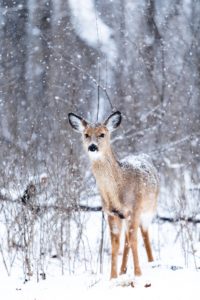
Photo by Teddy Kelley on Unsplash
Outside the windows, one looking north and one looking south, are trees; the smooth snow-covered slope down to the pond, punctuated by stalks of last year’s cattails; the two-lane road, covered in a thick layer of ice, salt and sand; and the driveway, covered in a thick layer of ice, wood stove ash and cat litter for traction. Crows enliven the trees around us; the ravens grace the air outside my windows, coming to check for victims of our mouse traps, which my partner throws out on the slope for them; and jays call harshly, forcing the smaller birds away from the bird feeders by the driveway.
This week we’ve had snow, and then on top of the snow we had freezing rain and subzero temperatures. I had to run to the post office to mail a package to my mother for Christmas, and I floated gingerly over the icy road, feeling the tires slip. The patient sleeping trees were backlit by the low sun and every twig, every pine needle, every single stem and blade was coated in sparkling ice, preserved by the polar air. I don’t think I’ve ever seen anything quite so beautiful, and I’ve carried the picture in my mind ever since.
It’s Winter Solstice in central Maine. No tree, no stockings, no pile of presents, no special food or drink. It’s Winter Solstice, and I’m alive. The trees are skimmed with diamonds, the low sun is shining, I’m writing and my hands are comforted by my mug of tea. A lifetime of favorite Christmas music plays from an iTunes playlist I created. I’m quiet. I’m at peace. I’m with two people I love — myself and my partner. I know joy. Later, when I go swimming, the sun will shine in the poolside windows and I’ll swim through sunlit rippled water as I do laps. If the pipes freeze in the kitchen sink again, we can do dishes in the bathtub. If the power goes out I can read by the light of my gold candle.
Tonight, on the longest night, I’ll lie snug in bed in our unheated room. We’ll read for a bit, our hands getting colder and colder as we hold our books in the frigid atmosphere, and then we’ll turn out the light and go to sleep while the house pops and cracks around us in the cold and whoever is moving around in the roof (Squirrel? Chipmunk? Mice? Wood rat?) scratches and scrabbles over our heads.
It’s Winter Solstice, and I wish you peace, and joy, and a still pause in which to be.
The light returns.
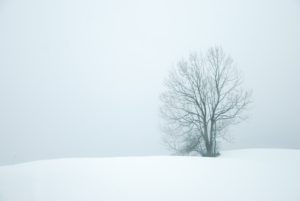
Photo by Das Sasha on Unsplash
All content on this site ©2016
Jennifer Rose
except where otherwise noted
by Jenny Rose | Aug 25, 2016 | Power
Last month I posted about our power and ability to say both yes and no to others. This morning I’m thinking about another level of yes and no; that is the yes and no we say to life. At this level, the term ‘consent’ is useful. Consent means to “give permission for something to happen,” according to a 2-second search on Google.
Consent is a huge and complex topic and there’s a great deal of discussion about different aspects of it. For the purposes of this post, I’m using consent in the widest sense; the way in which we approach life.
Several interactions this week have made me think about the mysterious difference between people who consent to learn and grow and those who don’t. When I think about my observations, and people I’ve known, it’s clear to me the difference between these two kinds of people has nothing to do with age, sex, money, education, employment, intellect or family. It has nothing to do with the color of our skin or the god(s) we worship, or where on the planet we live, or what kind of horrors we might have endured.
I’m acquainted with a writer who sent me a piece in praise of stubbornness, a quality she admires (as do I) in herself and others because to her it means a determination to survive and do well, regardless of limitations, real and perceived. (Thank you, A!) We might mean the same thing by consent and stubbornness, or close to it. I see the ability to consent to learning and growth, over and over, no matter how many times we’re knocked down and cut off, as a kind of stubbornness — a refusal to give up, to close down, to conform to something that doesn’t work for us.
Without even trying I can identify seven people in my life, past and present, who don’t consent to the experience of life, the flow, the dance, the mystery and uncertainty, the synchronicity and the billions of invitations that arise for exploration, connection, understanding, growing and being.

Photo by Alex Iby on Unsplash
These folks are easy to spot. They resist. They argue with what is. They deny, distract, fall into various addictions. They don’t communicate effectively. They care about winning, being right and power-over. They have rigid stories and expectations. Everything that happens to them is a personal insult or a crisis. They’re victims. A good, deep question is a grave threat. To my eyes, they look miserably unhappy. They repeat the same patterns, over and over, dying a little more with each fruitless repetition. They do not consent. They refuse.

Photo by Cristian Newman on Unsplash
Every single one of the seven people I’m thinking of has had opportunities to learn, to grow, to change, to make different choices. They all had people in their lives who loved them and had information, tools and skills that might have enriched them. They all had people in their lives who valued them and wanted their contribution. They each had at least one person in their life who would have done anything to support them in learning and growing, and that person was me.
Most of those relationships are behind me now, because I have this unforgiveable quality of consent. My life now is based on the why, the what if, the whose rule is that, the help me understand. My life is about teach me, show me, share with me and what do you think? My life is about doing more of what works and letting the rest go. People who refuse and people who consent invariably have friction, because their needs are opposite. There’s just nowhere meaningful to go.
People who consent are not perfect or perfectly happy people. On the contrary, their lives have been filled with mess and miscalculations, abuse, addictions and other painful experiences, but they’ve learned from everything and everyone. People who consent don’t look at their lives with bitterness or frame things as mistakes. They see teachers, opportunities and fascinating things learned and yet to learn. People who consent are endlessly curious. They think about what they don’t know and question what they think they do know. They seek the hidden thing. They’re more likely to ask questions than proselytize or lay down the law. They’re not interested in power games or being right or winning. They seek to understand, to explore, to exercise choice, to manage their own power. They can laugh at themselves. They can and do say no, but they say it to protect their integrity and needs, not to shut out or control life.
People who consent choose happiness. That’s the most important one for me. I’m still reaching for that. I’ve always been a person who consents, but I’ve also chosen to stay limited in many important ways. As I’ve learned to discern between refusal and consent, I see that living life from a state of consent results in joy. Again, it’s got nothing to do with age, beauty, money, status or any of the things that the culture says we’re defined by. Joy, at the end of the day, is a simple thing, arising out of being at peace with this wild ride we call life. Joy is consenting to surrender, consenting to feel and experience, consenting to feeling fear and doing it anyway, consenting to give up trying to control the things we can’t control. Joy is composed of tears, blood, loss and disappointment, pain and growth. We already have it. It’s here, sitting on your shoulder as you read this and mine as I write.
All we have to do is consent.

Photo by Evan Kirby on Unsplash
All content on this site ©2016
Jennifer Rose
except where otherwise noted



















